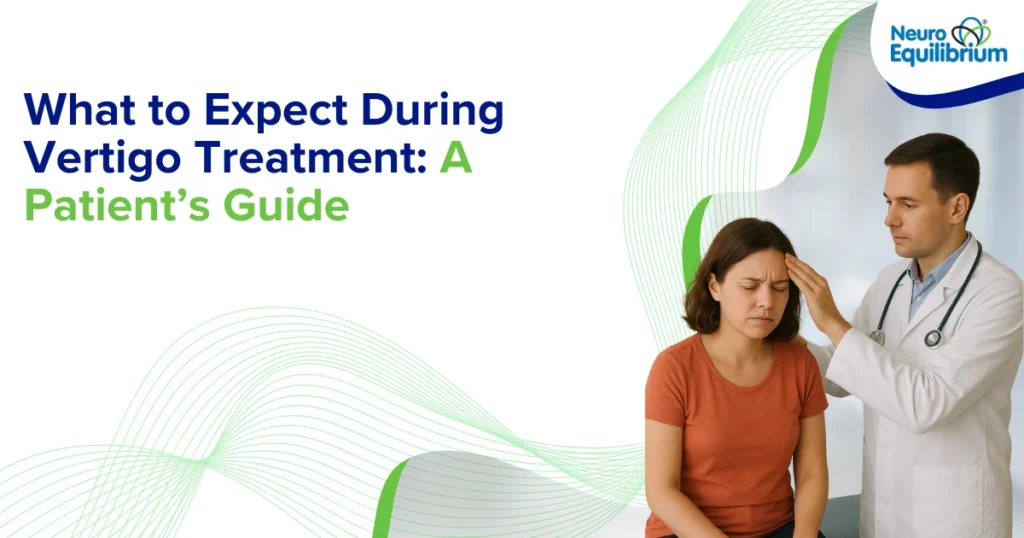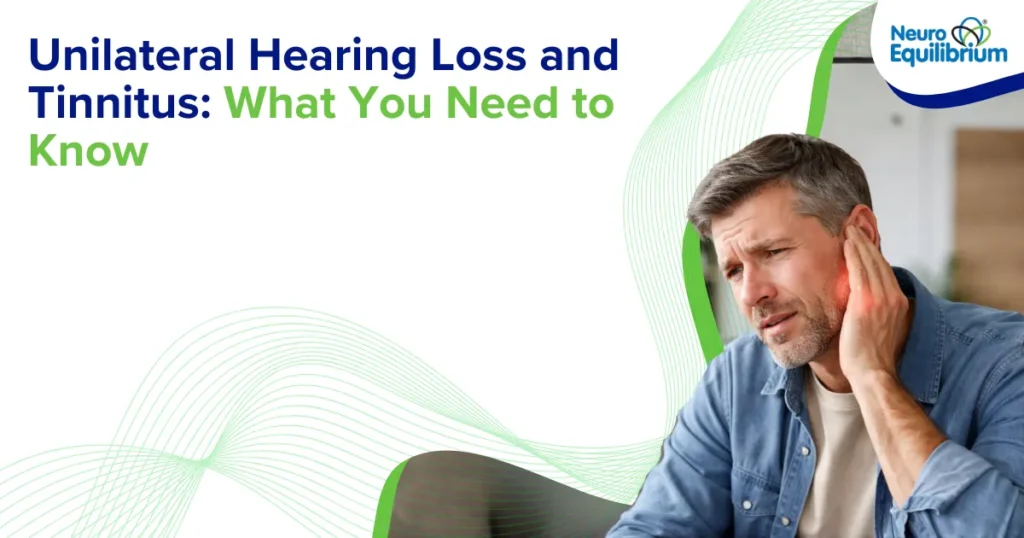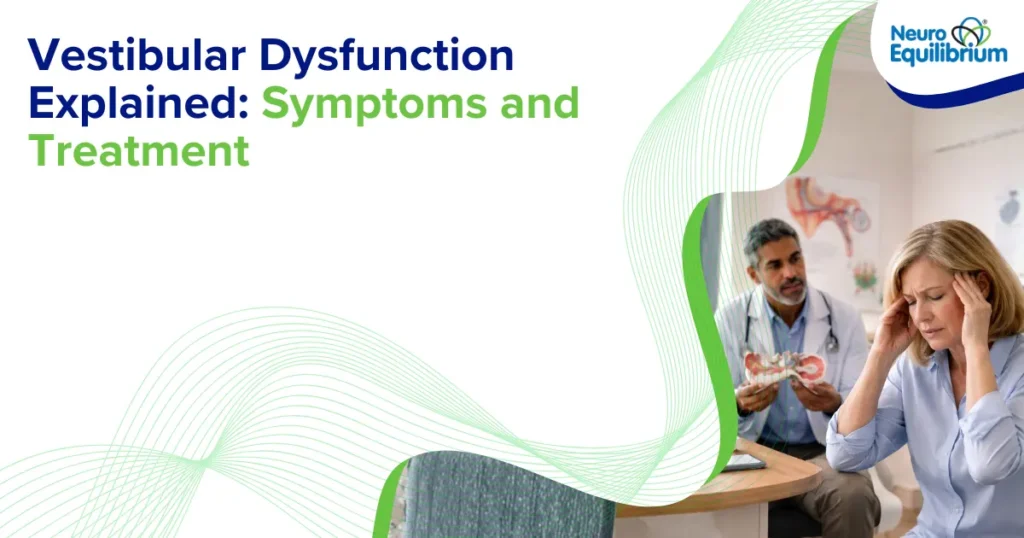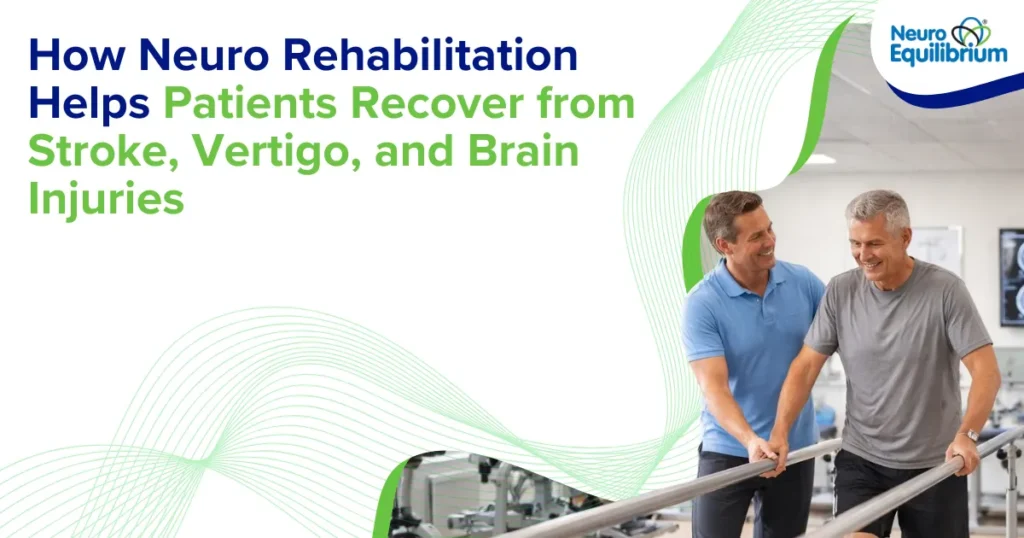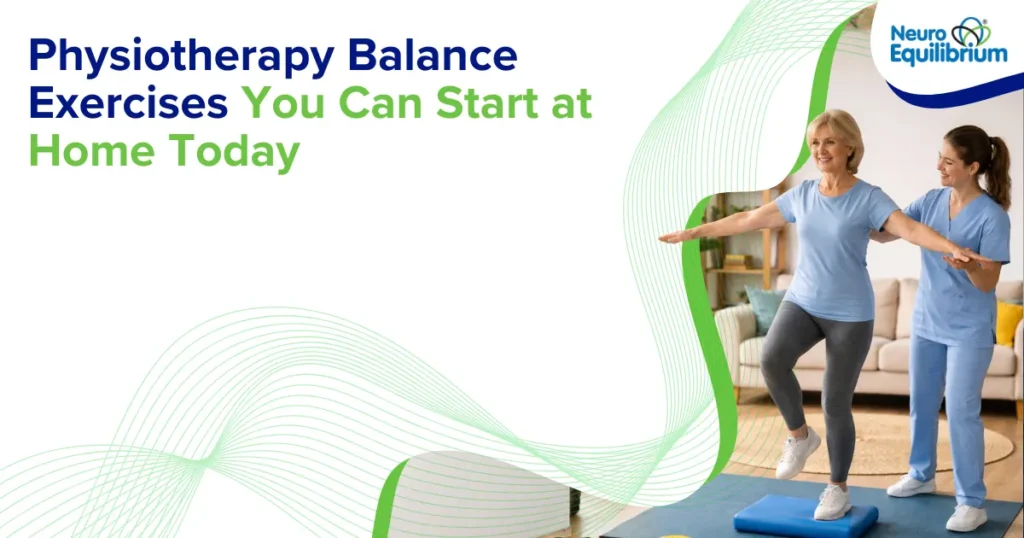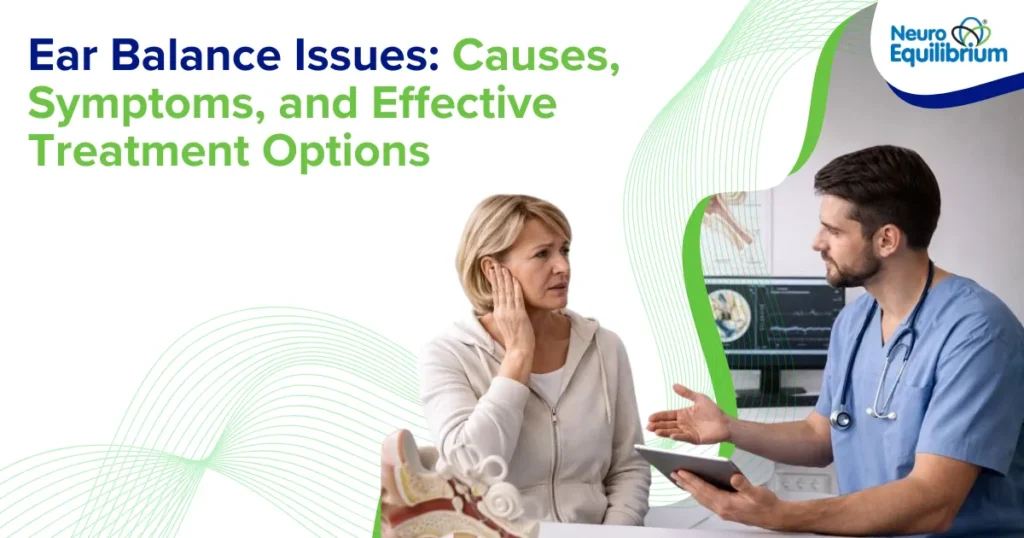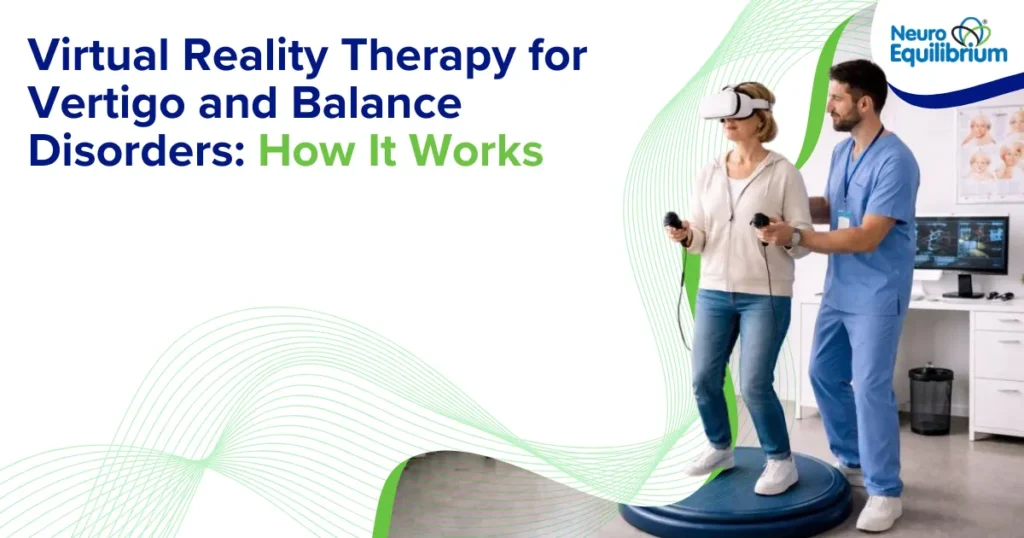Vertigo may be a frustrating and uncomfortable sensation, and it is not surprising to be somewhat afraid of it. It is not merely feeling dizzy or lightheaded, most people call the feeling the room spinning around, tilting or waving even when they are standing upright. Others equate it to being in rough seas in a boat. It can be an unpleasant experience, and even simple things such as walking, working, or even lying down can be very difficult.
It is better to keep in mind that vertigo is not a disease but it is a symptom that something may be wrong with the delicate balance system in the body. This system is highly complicated, and it engages the inner ear, eyes, the brain, as well as the signals of muscles and joints. When any of these parts of the network do not work well then vertigo may ensue. Since numerous causes are possible, the most basic step is to have the correct diagnosis as a prelude to any treatment.
We will attempt and take you through what to look into when undergoing a diagnostic process, the treatment that would be provided, what recovery may be like, when to seek help and how special clinics can assist you. When you learn these points, you will be in a better position to go through this process with confidence and clarity.
Know More About
- Vertigo Symptoms: A Complete Guide for Patients
- Vertigo Exercise Chart: A Simple Guide for Patients
- What Is a Vertigo Test?
The Diagnostic Journey
The first stage of vertigo treatment is to identify the cause of the situation. Practically any ailment can cause vertigo and thus, the case can go through many steps and even through the types of specialists.
Specialists You Might See
General Physician (GP)
The huge majority of people begin with their family doctor or general practitioner. This doctor will listen to your concerns, review your health record, and perform a basic examination. In case your GP suspects that you have vertigo, he or she will refer you to a specialist to conduct further tests.
ENT Specialist
Dizziness caused by ear causes is a problem of interest to an ENT (Ear, Nose, and Throat) physician. As the majority of the vertigo cases can be related to the inner ear, ENTs play a central role in diagnosis and treatment.
Neurologist
You may have a neurologist referral in case there is any evidence that your dizziness is associated with a neurological problem, such as a migraine or a problem with your nerves. Neurologists work with the nervous system and the brain.
Neurotologist
A neurotologist is an extremely specialised doctor that has been trained in ENT and neurology. They are familiar with the balance disorders and they are generally the perceived experts in the complex vertigo cases.
Your symptoms and medical history determine which specialist you will see. Often, patients may need to consult multiple specialists before a final diagnosis is reached.
| Specialist | Role in Vertigo Diagnosis & Treatment |
| General Physician (GP) | First point of contact. Reviews your health record, listens to concerns, and performs a basic exam. If vertigo is suspected, refer you to a specialist. |
| ENT Specialist | Focuses on ear-related causes. Since most vertigo cases are linked to the inner ear, ENTs are central in diagnosing and managing the condition. |
| Neurologist | Consulted when dizziness is thought to be neurological (e.g., migraines, nerve issues). Specializes in nervous system and brain conditions. |
| Neurotologist | Highly specialized in both ENT and neurology. Experts in balance disorders and complex vertigo cases. Often handle the most challenging diagnoses. |
The Process of Diagnosis
Diagnosis involves three main stages: history-taking, physical examination, and specialised testing.
1. Patient History
The doctor will ask detailed questions such as:
- When did the dizziness start?
- How often does it occur?
- What is the duration of every episode?
- Do you experience any triggers such as standing up in a hurry, turning your head or some types of food?
- Do you experience any other symptoms, including hearing loss, ringing in the ears, nausea, headaches, or changes in vision?
- Do you have medical problems such as migraine, high blood pressure and diabetes?
This part is vital because vertigo has many possible causes, and the answers can help the doctor narrow down the list of possibilities.
2. Examination
Next, the doctor may perform simple tests of balance and coordination. They may check your walking pattern, eye movements, and reflexes. They may also look inside your ears for signs of infection or other problems.
3. Specialised Tests
To ascertain the specifics of your balance system at work, specialised tests will need to be run in most situations. The tests are non-invasive and mostly painless. The common ones include:
- Videonystagmography (VNG): Special goggles monitor eye movements to help determine whether vertigo originates in the inner ear or the brain.
- Dix-Hallpike Test: It is a rapid positional test which may be utilized to identify BPPV (a frequent cause of vertigo).
- Subjective Visual Vertical (SVV): The subjective test of whether or not you are able to perceive vertical orientation correctly.
- Dynamic Visual Acuity (DVA): The eyes are tested when the head is in motion.
- Video Head Impulse Test (vHIT): Assesses eye and head coordination during rapid head movements.
- Vestibular Evoked Myogenic Potentials (VEMP): Reflexes of some of the inner ear organs are evaluated with the help of sound.
- Audiometry: Hearing and balance are inseparable, and thus regular hearing tests are carried out.
- Posturography: The balance test under diverse conditions.
These tests may require you to stop taking certain medications, abstain from caffeine, or avoid eye make-up. During some tests, you might feel quite dizzy, but this sensation usually subsides quickly seconds.
Treatment Options for Vertigo
Once the cause of vertigo is known, your doctor will design a treatment plan. Treatment varies widely depending on the diagnosis.
1. Repositioning Maneuvers (for BPPV)
The BPPV or Benign Paroxysmal Positional Vertigo is one of the most prevalent causes of vertigo. It happens when the tiny crystals of calcium in the inner ear are free and they move into the wrong part of the balance canals.
- Purpose: Repositioning maneuvers actually put these crystals into place.
- Types: The most popular are Epley, Semont, Barbeque Roll, Zuma and Gufoni maneuvers.
- Difficulty Level: A caring professional will take his time and move your body and head into a sequence of postures that will assist you in getting better. You may find that at times you might experience a temporary increase in your symptoms before you form improvement but be assured that this is normal.
- Success: Most of the patients feel relieved after one or two sessions. The Epley maneuver is successful in about 80–90% of cases.
- Safety: These are non-invasive, non-pharmacological manipulations and are safe.
BPPV, especially in elderly or migraine sufferers, is usually chronic and it is reassuring to know that the maneuvers may be repeated at any time.
2. Vestibular Rehabilitation Therapy (VRT)
If loose crystals do not cause your vertigo, or if you have lingering balance problems after BPPV treatment, VRT may be recommended.
- Purpose: The brain is retrained to react to new signals of balance in a set of exercises.
- Exercises Include:
- Gaze stabilization (being able to pay attention to something and moving a head).
- Balance (standing on various surfaces or walking with head turns).
- Habituation (exposure to movements which cause dizziness until the brain becomes accustomed to them).
- Uneven surface dynamic walking.
- Technology Integration: Most of the modern clinics such as Neuroequilibrium apply virtual reality to make exercises more interactive. For example, patients may practice balance in a virtual street, on a beam, or in a moving environment.
VRT is highly effective, but it requires patience and consistency. Improvement usually appears over weeks rather than days.
3. Medications
Drugs may be applied to cure underlying illnesses, or are a short-term relief.
- For Specific Conditions:
- Vestibular neuritis steroids.
- Meniere- Disease pressure-lowering medications.
- Migraine-preventive drugs for vestibular migraine.
- For Symptom Relief: Medicines prescribed by the concerned doctor can help reduce nausea and dizziness during severe episodes.
Important note: Vestibular suppressants should only be taken for a short period. The long-term utilization may delay the process of self-recovery and disrupt proper diagnosis.

4. Cognitive Behavioural Therapy (CBT)
Vertigo is not just a medical problem. Dizziness may be exacerbated by anxiety and stress, and in some cases, it can persist even after the underlying issue has been resolved. CBT is useful since it treats the psychological and emotional aspects of vertigo.
- Patients learn to recognize and change distorted thinking patterns.
- Deep breathing and progressive muscle relaxation are some of the relaxation techniques taught.
- Slow exposure to triggers can be used to lessen fear of dizziness.
CBT typically entails weekly therapy of at least 4 or 6 weeks. It has been found to enhance confidence among many patients and help them feel less distressed due to vertigo.
5. Lifestyle Adjustments
Even the slightest changes in daily routine can reduce the cases of vertigo and contribute to treatment.
- Diet: Salt should be limited, caffeine and alcohol should be avoided, balanced food should be eaten, but in order to keep blood sugar normal, and foods that cause migraines should be avoided, such as chocolate or old cheese.
- Hydration: Use 2-3L of water per day.
- Stress Management: Yoga, meditation, or simple breathing exercises may help calm the nervous system.
- Sleep: Sleep regularly (7-9 hours of sleep).
- Practice: Balance is improved by exercising, e.g. walking or tai chi.
These can appear to be just mere steps but they can make a lot of difference in mitigating the vertigo attacks.
6. Surgery
A very rare option is surgery which is only implemented when other therapies fail. Examples are the treatment of a leak in the inner ear (perilymph fistula), Superior Semicircular Canal Dehiscence (SSCD) or brain tumors such as acoustic neuroma.
Recovery and Prognosis
- BPPV: This is easily solvable through maneuvers.
- Vestibular Neuritis: The drug and VRT will improve in most cases in a few weeks.
- Meniere Disease and Vestibular Migraine: It is treated as long-term ailments. Treatment is not curative, but attempts to decrease the frequency and severity of attacks.
- PPPD (Persistent Postural Perceptual Dizziness): VRT along with CBT and medication is likely to make it better.
Recovery time varies, but most patients report improvement within a few weeks of proper treatment.
When to Seek Urgent Care
The causes of vertigo are usually curable and not dangerous, but you need emergency treatment in case of the following:
- Sudden and acute dizziness, blurred vision, difficulty talking, weakness in arm or leg.
- Severe headache along with vertigo.
- Loss of consciousness or fainting.
- The ringing in the ears or the temporary hearing loss.
- Persistent dizziness lasting three or more days without improvement.
These are symptoms that could point to the stroke or some other severe illness.
The Role of Specialised Clinics like Neuroequilibrium
At NeuroEquilibrium, the patients are well provided by a very specialized and integrated model whereby the skills of ENT physicians, neurologists, and neurotologists are combined under one roof. This multidisciplinary treatment is such that even the most complicated cases of vertigo are covered.
Advanced Diagnostic Testing
- Specialized balance tests such as VNG, vHIT, VEMP, and posturography provide in-depth analysis of inner ear and brain function.
- These tests help identify the root cause of dizziness and balance disorders with precision, avoiding unnecessary delays in diagnosis.
Personalized Treatment Programs
- Tailor-made care plans include several treatment options:
- Repositioning maneuvers for inner ear issues
- Vestibular Rehabilitation Therapy (VRT) for balance retraining
- Medications when required
- Cognitive Behavioral Therapy (CBT) to manage associated anxiety and stress
- Virtual Reality–based rehabilitation introduces the latest technology to speed recovery and improve long-term outcomes.
Holistic, Patient-Centered Care
- All patients are treated individually and treatments are tailored to the physical symptoms as well as the emotional state of the patient.
- This method can be of particular significance to those who have had months or years of vertigo and need to gain confidence and autonomy.
NeuroEquilibrium assisted patients in achieving stability, alleviation of dizziness, and normal routine life events with structured and comprehensive care. This goes a long way in enhancing their living standards.
Sources
- Swartz R. (2005). Treatment of Vertigo. American Family Physician. https://www.aafp.org/pubs/afp/issues/2005/0315/p1115.html (American Academy of Family Physicians)
- Bae C.H., et al. (2021). Current diagnosis and treatment of vestibular neuritis. PMC. https://pmc.ncbi.nlm.nih.gov/articles/PMC8913909/ (PMC)
- Hall C.D., et al. (2021). Vestibular rehabilitation for peripheral vestibular hypofunction: Clinical Practice Guideline. PMC. https://pmc.ncbi.nlm.nih.gov/articles/PMC8920012/ (PMC)
- “How Long Does Vestibular Rehabilitation Take to Work?” (2023). Innovative Health Care Centers. https://www.innovativehcc.com/how-long-does-vestibular-rehabilitation-take-to-work/ (innovativehcc.com)
- “What is the best way to get rid of dizziness or vertigo?” (2024). OhioHealth Brain & Spine Institute. https://health.osu.edu/health/brain-and-spine/vertigo-treatment (health.osu.edu)
- “Natural remedies to treat vertigo at home.” (2024). Healthline. https://www.healthline.com/health/home-remedies-for-vertigo (Healthline)
- “Vertigo – symptoms, causes and treatments.” (2025). NHS UK; NHS Inform / NHS website. https://www.nhs.uk/conditions/vertigo/ (nhs.uk)
1. How do I know if my dizziness is vertigo or something else?
Vertigo refers to feeling like rotating or moving. Lightheadedness is not normally vertigo without spinning. A doctor can verify tests.
2. Can vertigo go away on its own?
Yes, there are some cases of mild BPPV which can also resolve without treatment. Nevertheless, medical professional care tends to accelerate the healing process and minimise the chances of relapse.
3. Are home remedies safe for vertigo?
There are exercises like the Epley maneuver which can be performed at home only with proper diagnosis and training. These should be performed under supervision of a specialist, self-diagnosis can be risky.
4. Will vertigo come back after treatment?
Yes, vertigo can recur, especially with BPPV or migraines. Knowing your triggers and maintaining follow-up care reduces recurrence.
5. Can stress make vertigo worse?
Yes. Dizziness is normally increased by stress and anxiety. The effect can be reduced by relaxation techniques and therapy.






